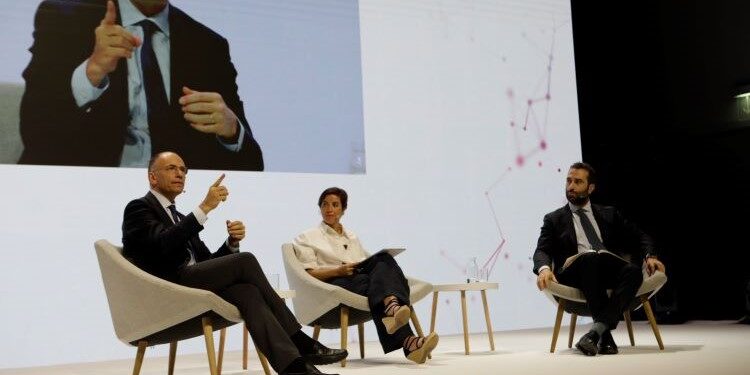The Diplomat
The Minister of Economy, Commerce and Business, Carlos Cuerpo, and the president of the Jacques Delors Institute, Enrico Letta, starred yesterday at the ICEX 2024 Forum, an event that brought together more than 1,200 companies and prominent business leaders, experts in international trade, in Madrid. and representatives of the Administration.
According to ICEX, the objective of this meeting was to analyze the trends that are marking global markets and to share the challenges that Spanish companies face abroad.
The event, organized by the Ministry of Economy, Commerce and Business, through ICEX Spain Exportation and Investment (ICEX), a body dependent on the Secretary of State for Commerce, allowed the exchange of ideas and the creation of professional networks.
The day began with the opening words of the State Secretary for Commerce, Amparo López Senovilla: “We want to put companies at the center of our strategies, listen to their concerns and needs, and adopt concrete measures to continue accompanying them to go out to the international markets. “The conclusions that emerge today from this meeting will be included in the next Action Plan for the Internationalization of the Spanish Economy on which we are currently working,” she announced.
Subsequently, a dialogue took place between Carlos Cuerpo and Enrico Letta about the transition from geopolitics to geoeconomics. The debate was moderated by Elisa Carbonell, CEO of ICEX.
Erico Letta, who was also Prime Minister of Italy, highlighted in his speech the difficulty of competing with China or the US in sectors such as telecommunications, energy, finance or defense and highlighted that the EU continues with the same mentality as 30 years ago in relation to these sectors, while the world has changed.
For his part, Carlos Cuerpo valued Spain’s important role as a strategic bridge between Europe and Latin America and North Africa, but warned of the need to explore and seek diversification in new markets. Likewise, the minister stated that the EU must ensure that Spanish companies compete internationally on equal terms.
The forum continued with a series of workshops on issues of interest, such as digitalisation, artificial intelligence and its impact on competitiveness, barriers to international trade, regulatory changes and complexity, taking full advantage of the EU internal market and opportunities in international markets. These topics were addressed in a practical way, adapted to the specific experience of companies in the market.
The workshops included the participation of economic and commercial advisors from Spain in more than 20 countries on the five continents, along with representatives of Spanish companies of all sizes that operate both in traditional markets and in disruptive sectors.
The event concluded with a series of meetings between companies and economic and commercial advisors from Spain in various markets, offering an invaluable opportunity for networking and international collaboration.







